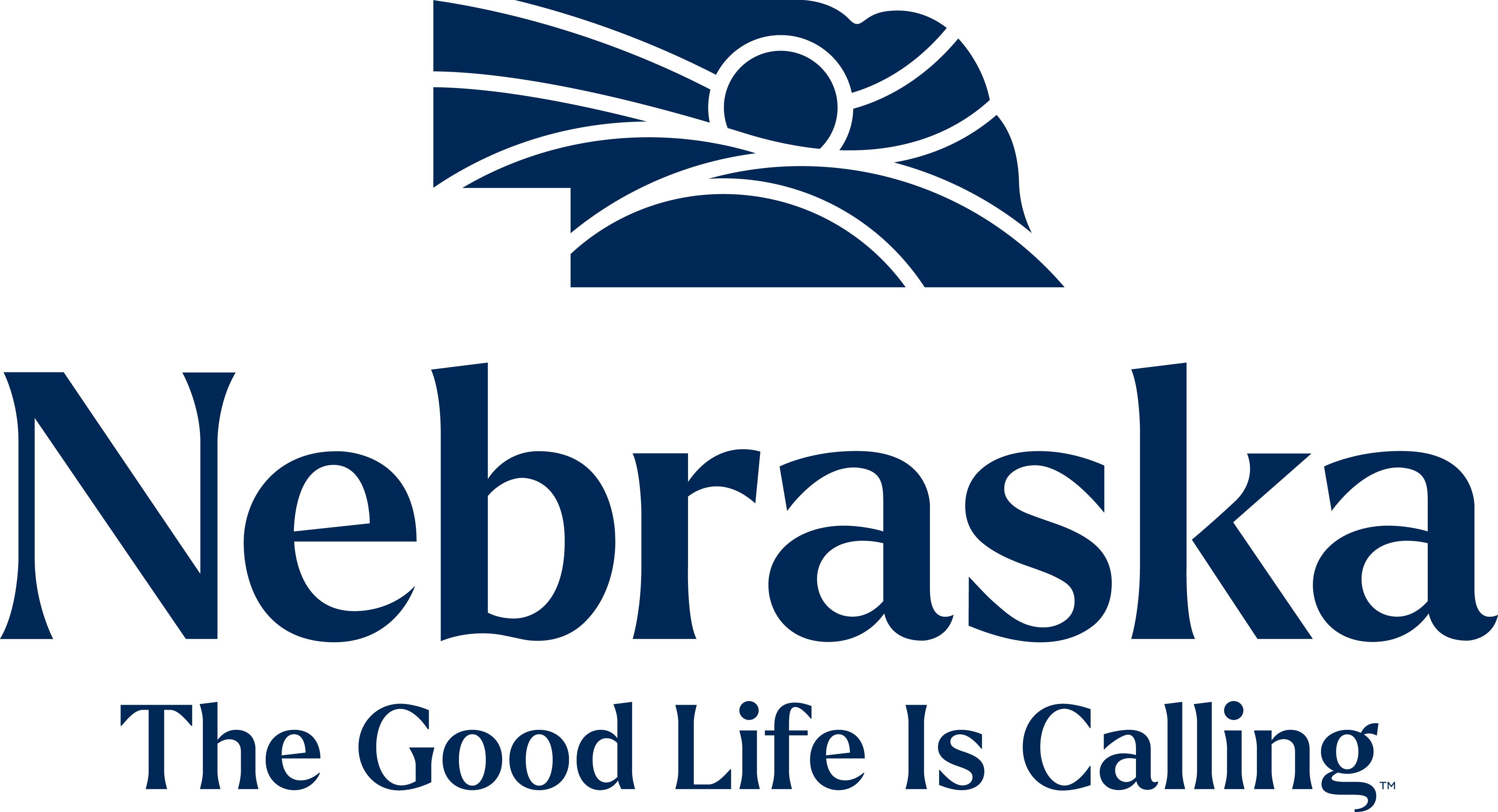Section 3

What is Section 3?
Section 3 is a provision of the Housing and Urban Development Act of 1968 intended to ensure that preference for employment, training, and contracting opportunities generated from the expenditure of Federal financial assistance be directed to local low- and very low-income persons, particularly those who receive federal housing assistance and businesses that are owned by or substantially employ such persons.
Section 3 applies to financial assistance expended for housing rehabilitation, housing construction, and other public construction projects assisted under HUD programs. Projects with HUD funding in excess of $200,000 are subject to Section 3.
Want to Learn More?
Refer to Chapter 13: Section 3 of the CDBG-DR Manual for further guidance related to this cross-cutting requirement.
The State of Nebraska’s Action Plan further articulates requirements and programmatic structures that apply to all CDBG-DR programs. See also the following HUD resources:
Roles and Responsibilities
Nebraska Department of Economic and Development
DED maintains overall responsibility for ensuring Section 3 compliance requirements are met by Subrecipients and Successful Applicants. DED will serve the following functions to support Section 3 compliance:
-
Establish a process to support Subrecipients and Successful Applicants with completing quarterly reports that effectively capture Section 3 reporting;
-
Lead Section 3 management for applicable programs managed directly by the State; and
-
Review Section 3 reporting to ensure Subrecipient and Successful Applicant compliance.
Subrecipients and Successful Applicants
Subrecipients and Successful Applicants with projects subject to Section 3 are responsible for maintaining compliance with the following requirements:
-
Include Section 3 contract provisions in all contracts subject to Section 3;
-
Ensure contractors and subcontractors meet the Section 3 requirements identified in 24 CFR § 75.19;
-
Meet the Section 3 Numerical Benchmarks for the number of hours worked by Section 3 and Targeted Section 3 workers;
-
Document the qualitative efforts taken to meet numerical benchmarks;
-
Provide employment and training opportunities to Section 3 and Targeted Section 3 workers within the metropolitan area in which the project is located, to the greatest extent feasible;
-
Contract with Section 3 Business Concerns, o the greatest extent feasible; and
-
Complete regular reporting requirements including, but not limited to, quarterly and final Section 3 Compliance Reports, Targeted Section 3 Worker Certification Form, and the Final Section 3 Labor Report.
Subrecipients and Successful Applicants with projects not subject to Section 3 are not required to follow the requirements identified in this section; however, Subrecipients and Successful Applicants are encouraged to consider ways to support the purpose of Section 3.
Contractor Requirements
Contract Awards
Contract awards will only be made to responsible contractors possessing the ability to perform successfully under the terms and conditions of the proposed contract. These requirements are provided in additional detail under the Monitoring and Compliance PlanThe hiring authority (i.e., DED, Subrecipient, or Successful Applicant) must maintain documentation or ensure that a contractor maintains documentation to demonstrate compliance with the regulations.
Reporting and Recordkeeping
Bidding
During the bidding process for activities associated with the CDBG-DR Program, the hiring authority (i.e., DED, Subrecipient, or Successful Applicant) must perform due diligence by verifying Section 3 eligibility and collect and maintain documentation related to Section 3 certification.
Quarterly and Final Reporting
In quarterly and final reports to DED, Subrecipients and Successful Applicants must collect and provide documentation related to compliance with Section 3 as defined in Chapter 13: Section 3 of the CDBG-DR Manual (see also Monitoring and Compliance Plan).
Recordkeeping
HUD and DED will have access to all records, reports, and other documents or items of the Subrecipient and Successful Applicant that are maintained to demonstrate compliance with the requirements of 24 CFR Part 75 or that are maintained in accordance with the regulations governing the specific HUD program by which the Section 3 project is governed.
- Contractors will verify eligibility documents; and
- Subrecipients and DED will verify contractor reports.
The hiring authority (i.e., DED, Subrecipient, or Successful Applicant) must also maintain documentation, or ensure that a contractor, or subcontractor that employs the worker, provide documentation to ensure that workers meet the definition of a Section 3 worker or targeted Section 3 worker, at the time of hire or the first reporting period.
Section 3 Benchmarks
HUD established Section 3 benchmarks for the number of hours Section 3 workers and targeted Section 3 workers work on a project. The Section 3 benchmarks are key targets for DED, Subrecipients, and Successful Applicants.
To ensure Section 3 projects are meeting the Section 3 benchmarks, Subrecipients and Successful Applicants must report the following to DED:
- The total number of labor hours worked;
- The total number of labor hours worked by Section 3 workers; and
- The total number of labor hours worked by targeted Section 3 workers.
Subrecipients and Successful Applicants are not required to report the total labor hours worked for professional services jobs. However, if professional services workers meet the definition of a Section 3 worker or targeted Section 3 worker, Subrecipients and Successful Applicants can report their labor hours in the applicable worker hour category to help meet Section 3 benchmarks.

Qualitative Efforts
Subrecipients and Successful Applicants must adequately document the qualitative efforts taken to meet the numerical goals. Such qualitative efforts may include, but are not limited to, the following:
-
Engage in outreach efforts to generate job applicants who are targeted Section 3 workers.
-
Engage via online platforms such as Subrecipient and Successful Applicant websites and social media platforms.
-
Announce opportunities related to Section 3 jobs in community meetings and public hearings.
-
Post notices in public buildings and in high traffic areas.
-
Post advertisements through traditional methods such as television, radio, billboards, and other signage.
-
Provide training or apprenticeship opportunities.
-
Provide technical assistance to help Section 3 workers compete for jobs (e.g., resume assistance, coaching).
-
Provide or connect Section 3 workers with assistance in seeking employment including drafting resumes, preparing for interviews, and finding job opportunities connecting residents to job placement services.
-
Hold one or more job fairs.
-
Provide or refer Section 3 workers to services supporting work readiness and retention (e.g., work readiness activities, interview clothing, test fees, transportation, childcare).
-
Provide assistance to apply for, or attend, community college, a four-year educational institution, or vocational or technical training.
-
Assist Section 3 workers to obtain financial literacy training and coaching.
-
Engage in outreach efforts to identify and secure bids from Section 3 business concerns.
-
Provide technical assistance to help Section 3 business concerns understand and bid on contracts.
-
Divide contracts into smaller jobs to facilitate participation by Section 3 business concerns.
-
Provide bonding assistance, guarantees, or other efforts to support viable bids from Section 3 business concerns.
-
Promote the use of business registries designed to create opportunities for disadvantaged and small businesses.
-
Outreach, engagement, or referrals with the state one-stop system as defined in Section 121(e)(2) of the Workforce Innovation and Opportunity Act.
Employment and Training
Prioritization
Regulations specifically prioritize opportunities and training to Section 3 workers residing within the Section 3 service area or the neighborhood of the project and participants in YouthBuild programs.
Worker Certification
For both Section 3 and targeted Section 3 workers, the hiring authority (i.e., DED, Subrecipient, or Successful Applicant) will utilize the appropriate Certification Form to document the status of the worker. Nothing in 24 CFR Part 75 shall be construed to require the employment of someone who meets either of the definitions of Section 3 worker or targeted Section 3 worker (see Chapter 13: Section 3 of the CDBG-DR Manual for definitions of Section 3 worker and targeted Section 3 worker). Such workers are not exempt from meeting the qualifications of the position to be filled and shall not be negatively affected by a prior arrest or conviction.
Professional Services
Professional Services hours are excluded from the reporting requirement for Section 3 and targeted Section 3 workers. The hiring authority (i.e., DED, Subrecipient, or Successful Applicant) should not include labor hours worked for professional services jobs in the total labor hours worked on the project. However, if employees in the professional services roles meet the definition of a Section 3 worker or targeted Section 3 worker, Subrecipients and Successful Applicants can report their labor hours in the applicable worker hour category. The effect of this reporting structure is to give a Subrecipient or Successful Applicant a bonus if they can report Section 3 labor hours in the professional services context.
Section 3 Business Concern
To the greatest extent feasible, and consistent with existing Federal, state, and local laws and regulations, hiring authority (i.e., DED, Subrecipient, or Successful Applicant) will ensure contracts for work awarded in connection with Section 3 projects are provided to business concerns that provide economic opportunities to Section 3 workers residing within the metropolitan area (or nonmetropolitan county) in which the project is located.
The hiring authority (i.e., DED, Subrecipient, or Successful Applicant) will perform due diligence by verifying Section 3 eligibility before awarding contracts to businesses that are self-certified as a Section 3 business. The status of a Section 3 business concern will not be negatively affected by a prior arrest or conviction of its owner(s) or employees. Nothing in 24 CFR Part 75 will be construed to require the contracting or subcontracting of a Section 3 business concern. Section 3 business concerns are not exempt from meeting the specifications of the contract.
Frequently Asked Questions
Q: What if a project is partially funded with HUD assistance? Is it still subject to Section 3?
A: Yes. Section 3 applies to the entire project, regardless of whether the activity is fully or partially funded with HUD assistance. However, if the amount of HUD assistance (not exclusive to CDBG-DR) does not exceed $200,000, Section 3 is not applicable.
Q: What if a project is unable to meet the Section 3 benchmarks? Is the project out of compliance?
A: If a project does not meet the Section 3 benchmarks, Subrecipients and Successful Applicants must document the qualitative efforts undertaken to achieve compliance. Please refer to Section 9, Section 3 Examples of Qualitative Efforts in Chapter 13: Section 3 of the CDBG-DR Manual document for eligible qualitative efforts that may be used to achieve compliance.
- Infrastructure Match Program Nebraska Revised Statute 84-30 ( Rev. Stat. § 84-304(3)(b), and
The CDBG-DR grant will be administered by the State of Nebraska Department of Economic Development (DED), through procurement contracts or through Subrecipients or Successful Applicants. The State of Nebraska maintains ultimate responsibility for ensuring compliance with procurement policies as outlined in the State of Nebraska Procurement Manual. Geographical preference list in the State of Nebraska Procurement Manual is not applicable to implementation of Disaster Recovery funds.
Contact Information
Questions and comments regarding CDBG-DR programs should be directed to the State of Nebraska’s Department of Economic Development (DED) via email at ded.cdbgdr@nebraska.gov or by calling (800)-426-6505.

